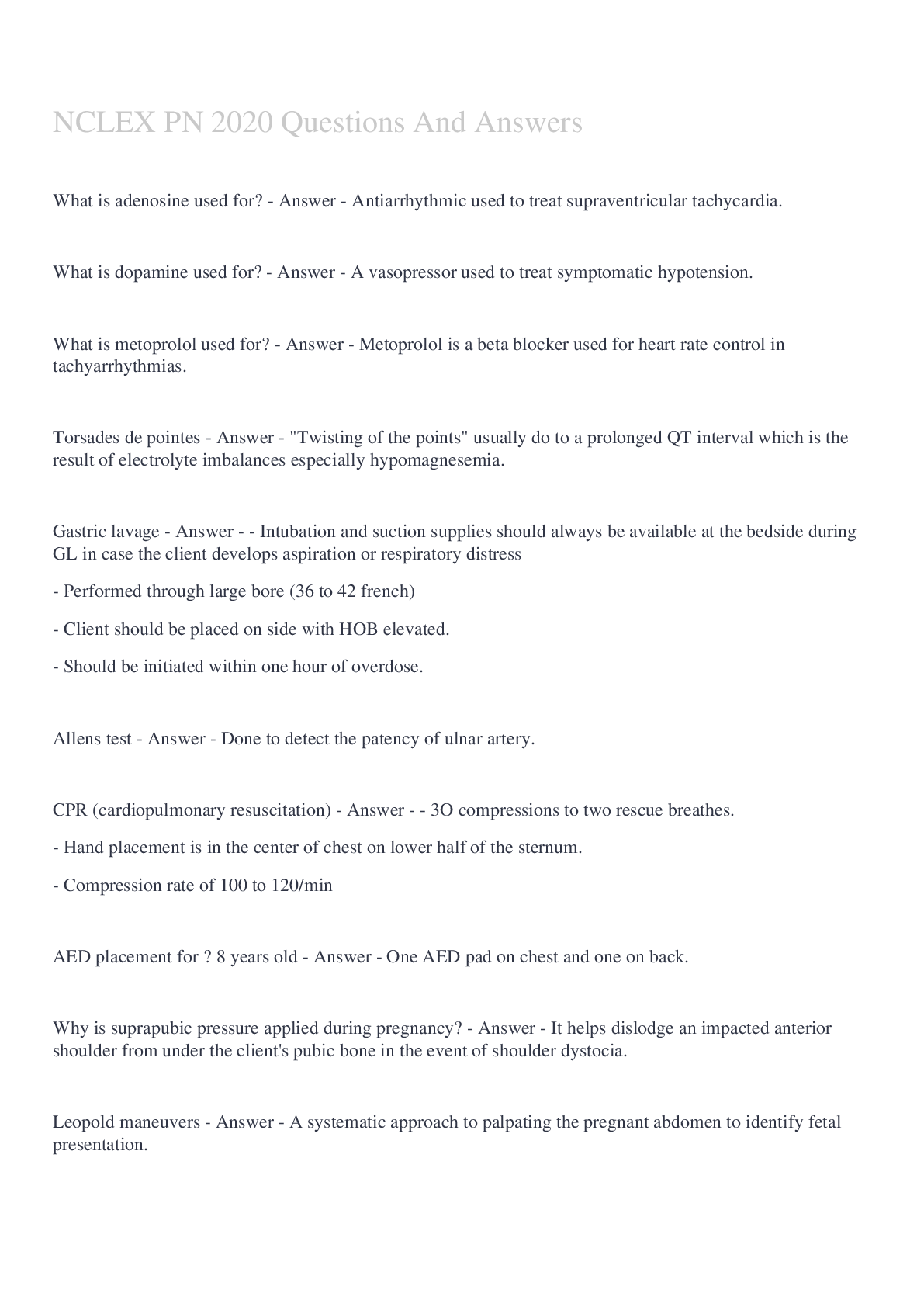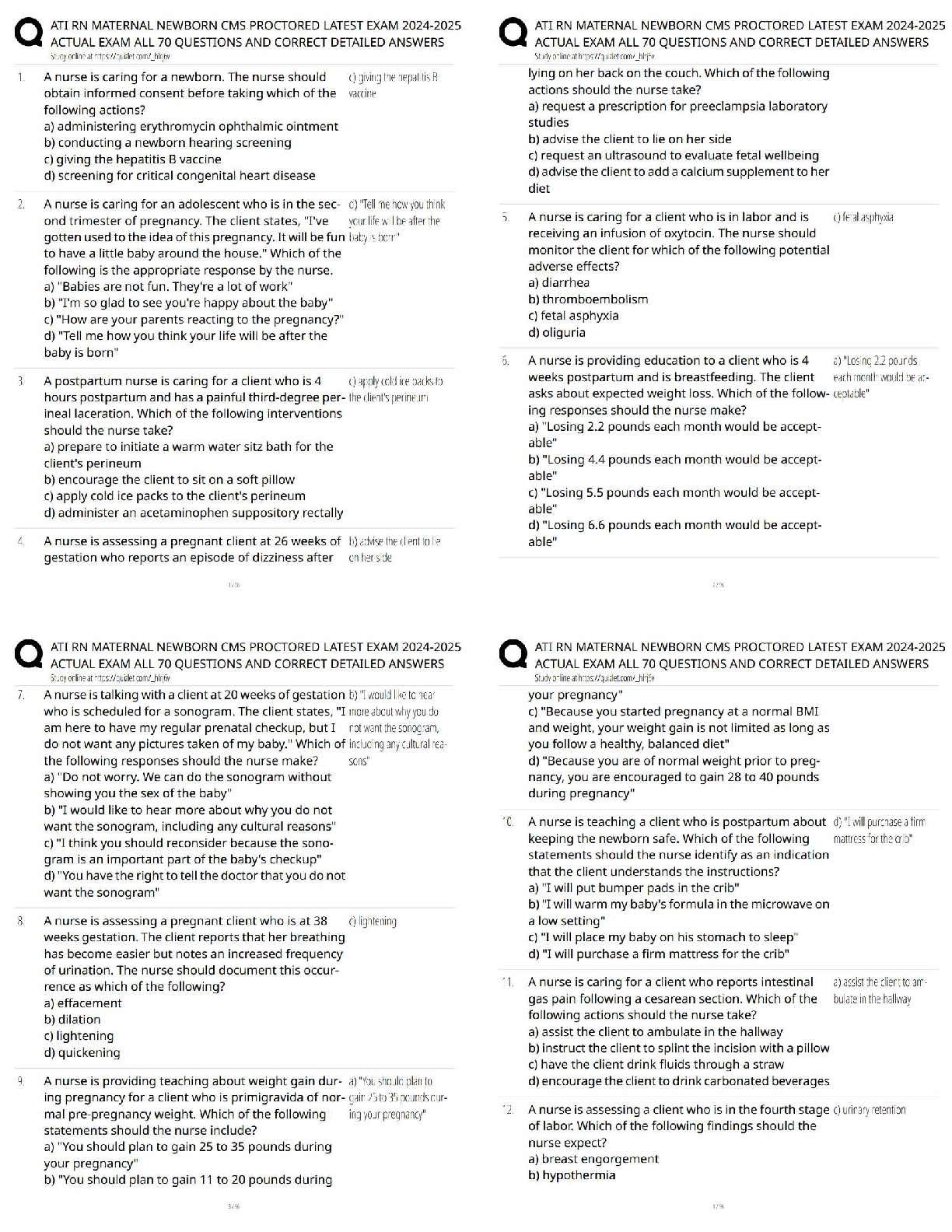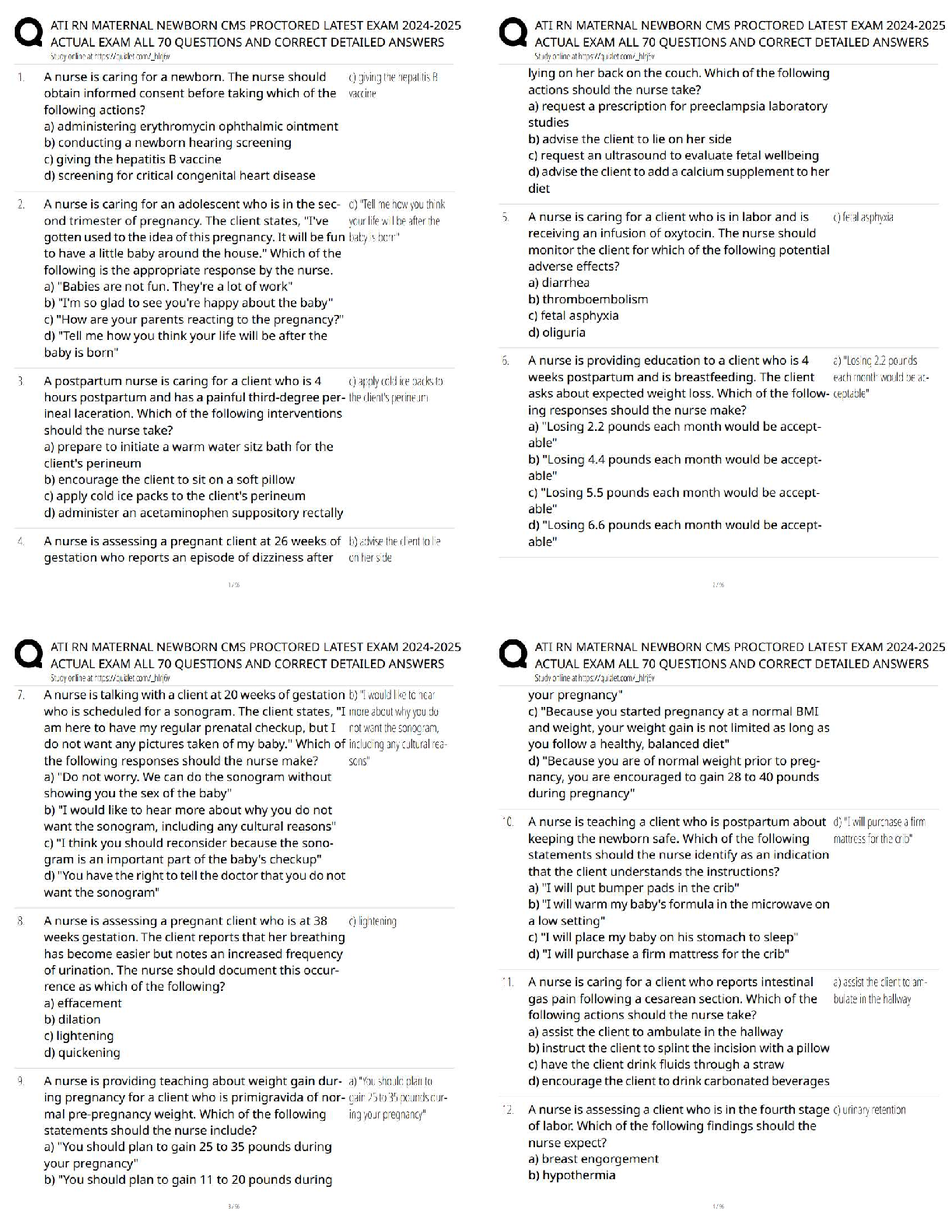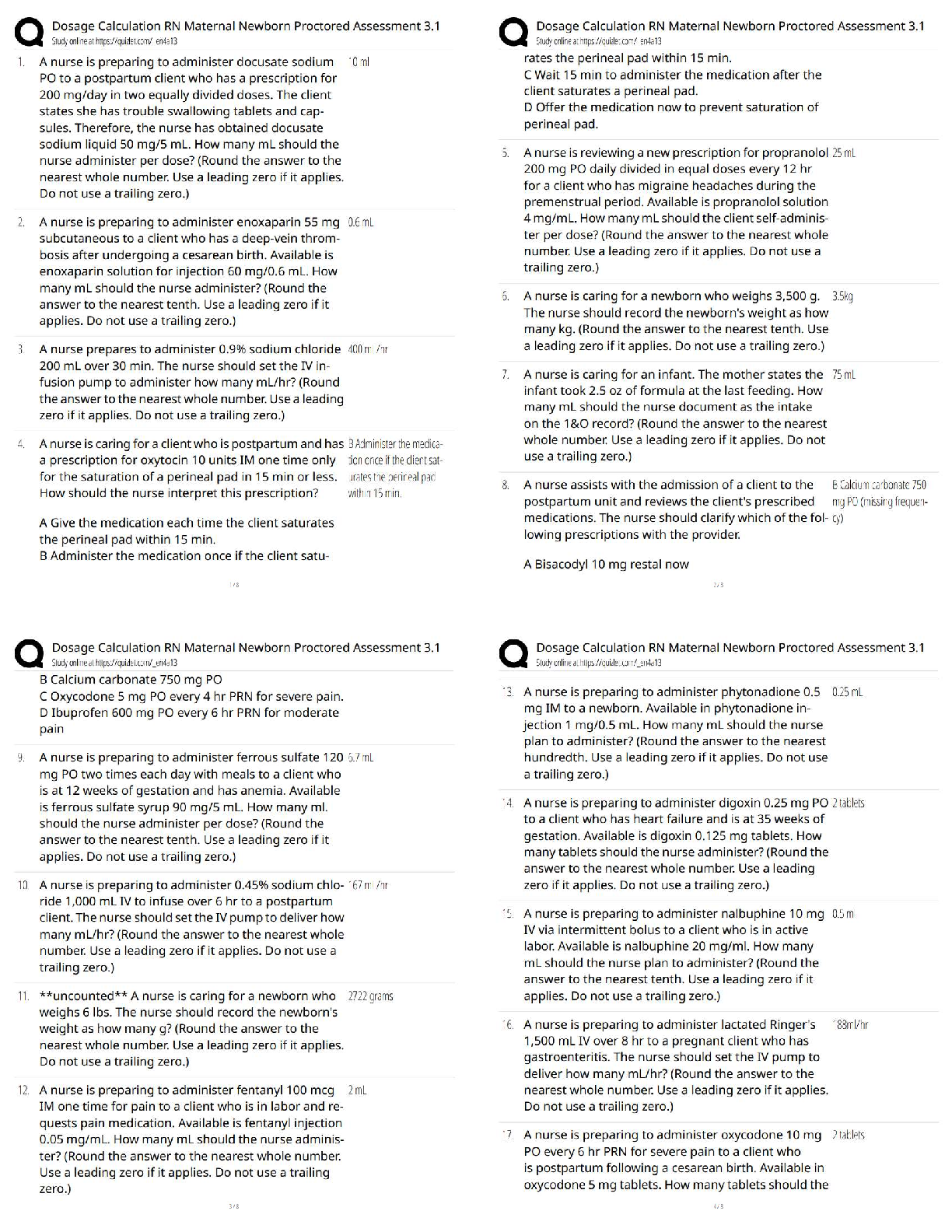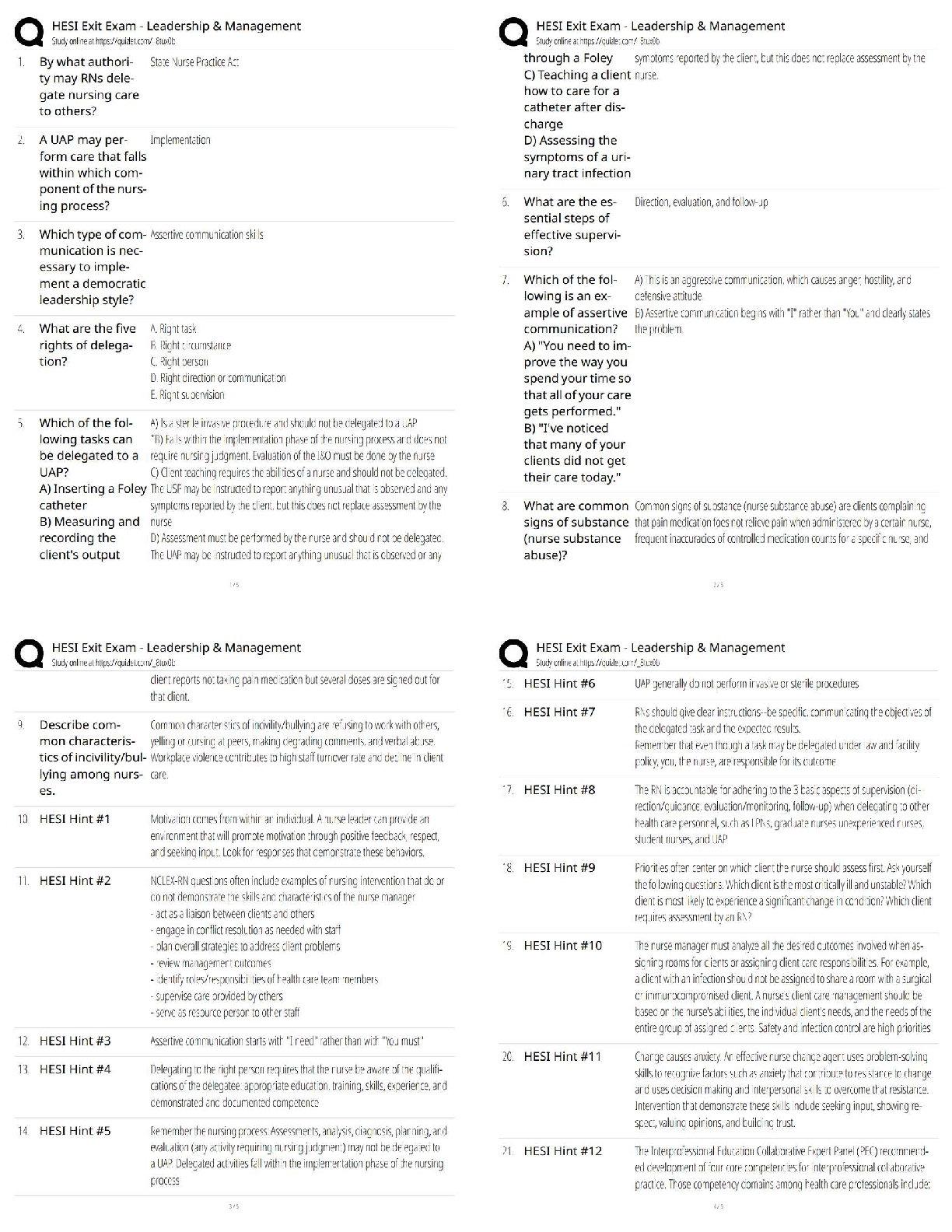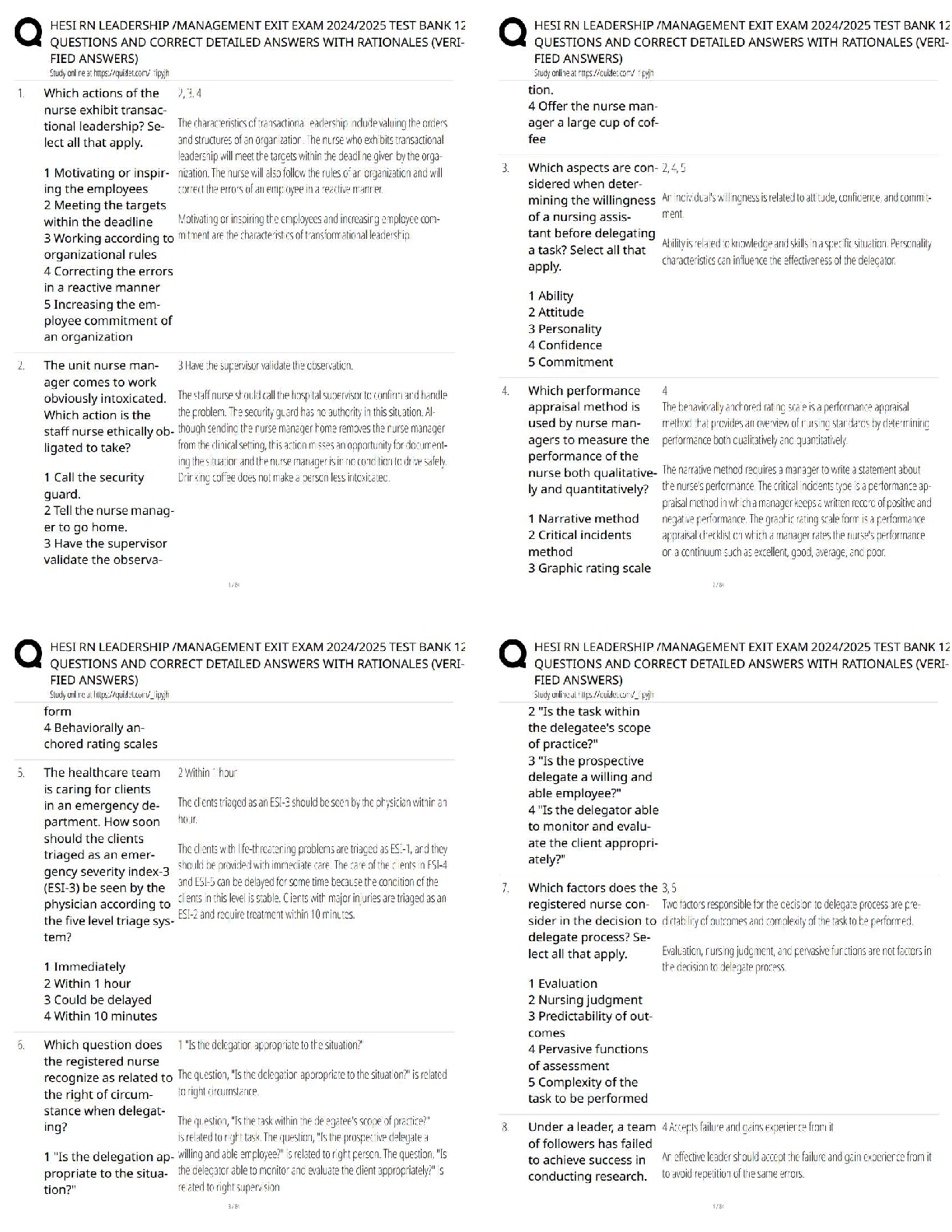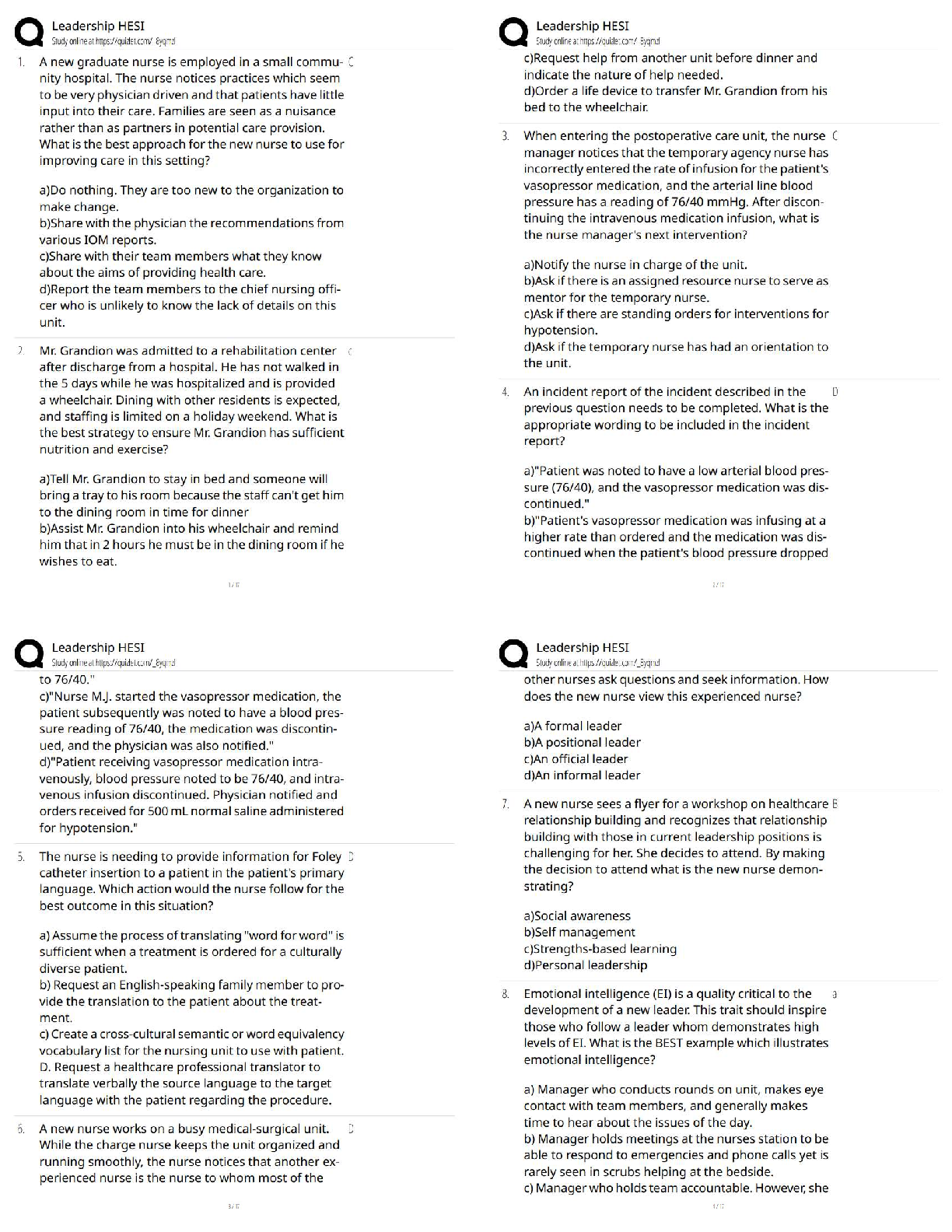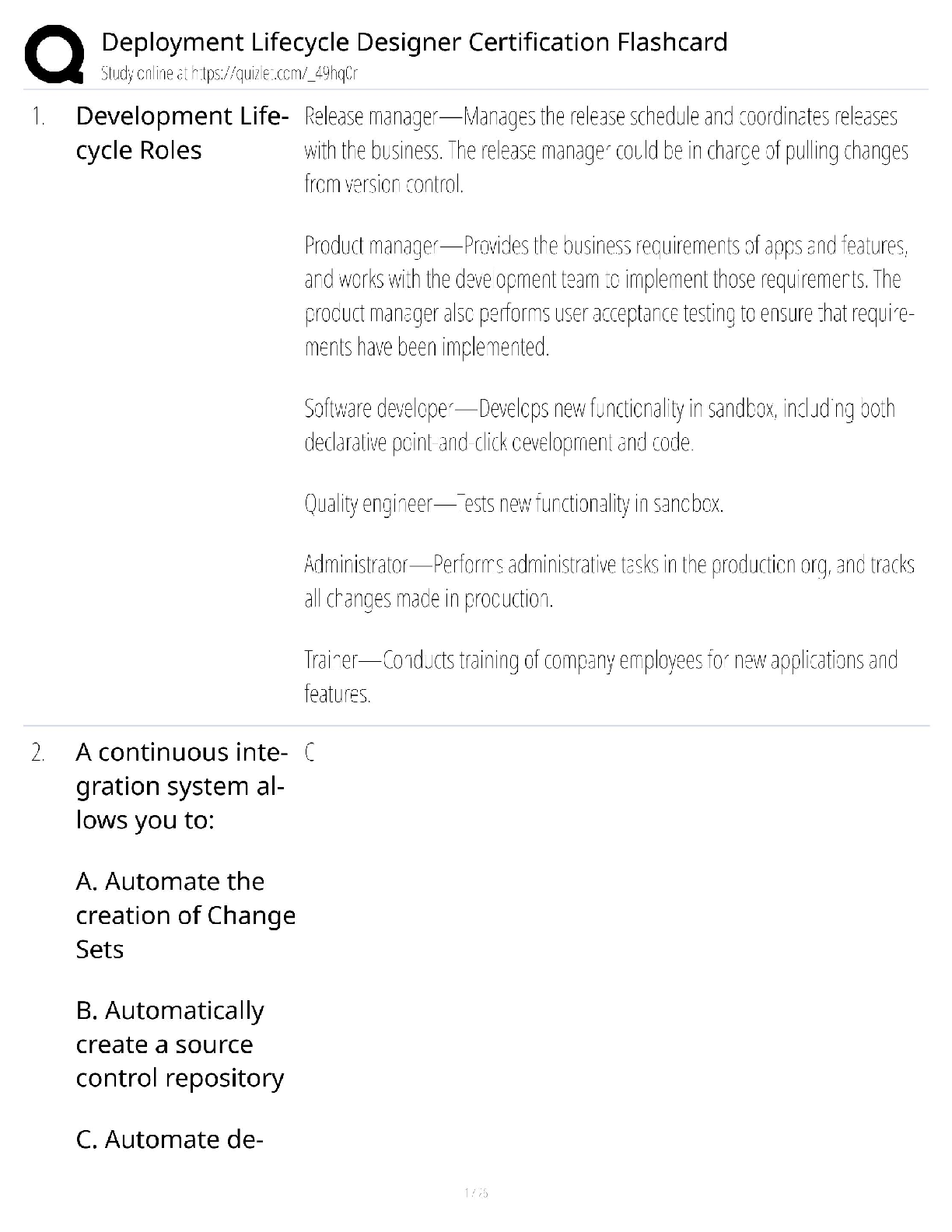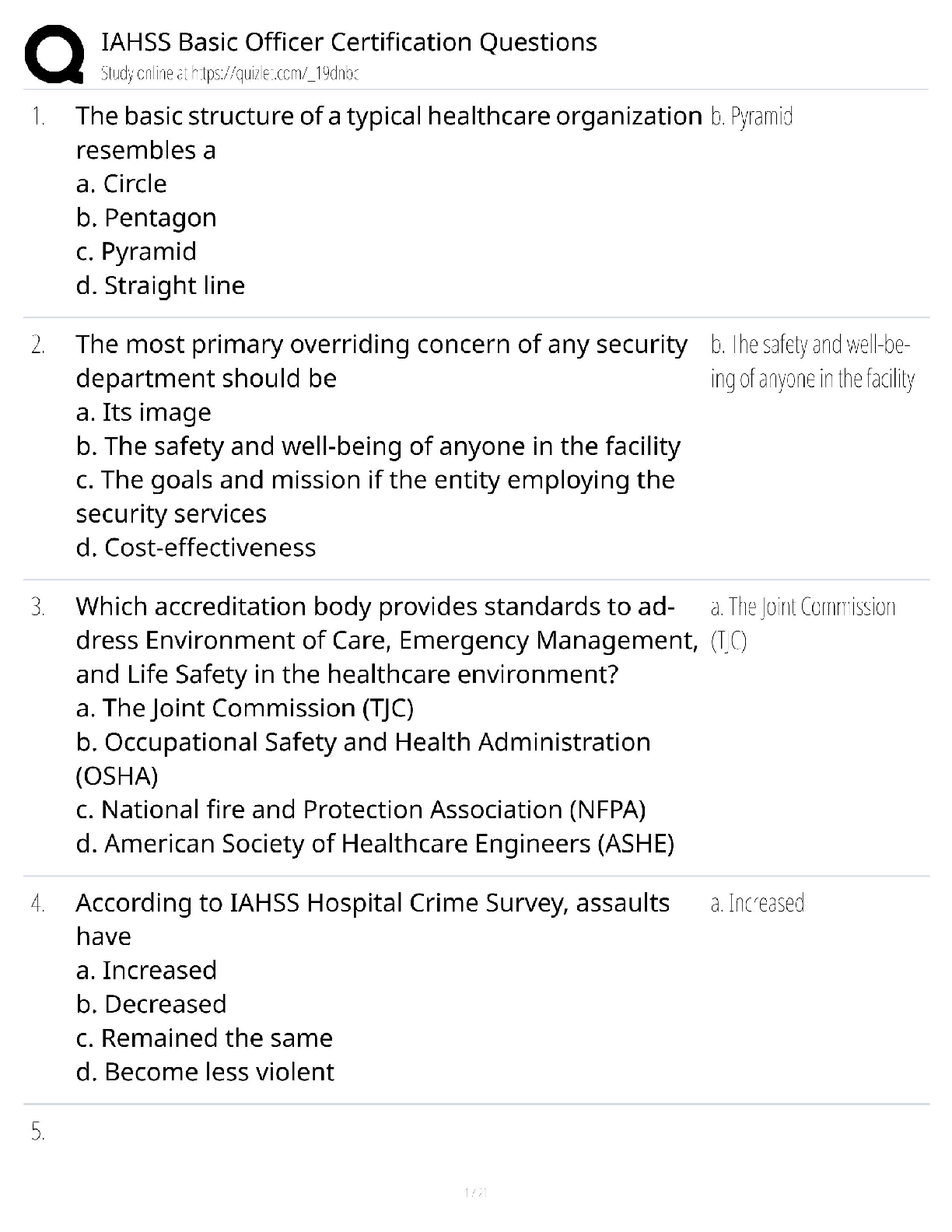Viticulture QUESTIONS AND ANSWERS( SCORES 100%)
Document Content and Description Below
Viticulture
The more stress a grapevine is under, the more grapes it will produce.
True
False Correct Answer: False (more stress results in fewer grapes)
Grapes grown in warm climates will
...
produce wines with _________ than a wine from a cool climate. Correct Answer: less acid and more alcohol.
Terroir, when referring to wine, describes the unique "taste" of a specific place.
True
False Correct Answer: True
The name of the genus made up of grapes is called _____________ Correct Answer: Vitis
Although grapevines are in a period of prime production between ten and thirty years of age, they can live to well over 100 years old.
True
False Correct Answer: True
The art and science of growing grapes is called viticulture.
True
False Correct Answer: True
A vintage date on a bottle of wine signifies the year the __________ Correct Answer: grapes were harvested.
Self-pollinate Correct Answer: A plant fertilizing itself
Temperate Climate Correct Answer: Mild; moderate in temperature. Best climate for grape production. (between 30th and 50th parallels)
Canopy Correct Answer: The vine's leaves and shoots, which often need to be controlled through different practices to shade the grapes, maximize leaf exposure to the sun or allow air circulation.
Grape Clusters Correct Answer: The mature fruit of a grapevine form groupings of grapes called clusters or bunches.
Shoots Correct Answer: The branches that shoot off the head and cordons of a vine. They form from tiny buds in the early spring and are the areas of the vine where leaves, flowers, and eventually grapes form.
Canes Correct Answer: After the harvest, the shoots dry out and turn hard and woody. At this stage they are often pruned from the vine; however, they can be trained along a wire or some other trellis material away from the plant. If allowed to develop and thicken, canes will turn into cordons, becoming perm. parts of the vine.
Cordons Correct Answer: Permanent branches of the vine, starting at the head and often trained in a horizontal fashion away from the trunk. Similar to a main branch of a tree, this is where the majority of the shoots will form and grow.
Rootstock Correct Answer: The portion of the vine that extends into the ground and pulls water, nutrients, and minerals out of the soil.
Mutations Correct Answer: A vine that has developed different characteristics, flavors, or qualities from an imperfect genetic reproduction.
Cross Correct Answer: If the pollen of one varietal is used to pollinate the flowers of another, the resulting seeds in the grapes produced through reproductive action will be different from the seeds of the two parent vines.
Hybrid Correct Answer: Similar to a cross, except that the two plants involved are of different but related species.
Clone Correct Answer: A vine that is an exact DNA copy of another, achieved through asexual reproduction.
Clonal Selection Correct Answer: Selecting the best genetic material available for the varietal you wish to use, and propagating it in your vineyard.
Dormancy Correct Answer: No outward signs of growth or life, but this does not mean that things are not going on inside the vine. If the ground isn't frozen the vine will still pull water and nutrients from the ground and build up enough energy for the spring new growth.
Bud Break Correct Answer: Period when buds begin to from on either the head or the cordons of a vine. First outward sign of life after dormancy and occurs when temps. begin to rise in the spring.
Flowering Correct Answer: Several weeks after bud break begins, tender green tendrils will grow off of the shoots in between the leaves and will form a branched cluster of small flowers called a panicle.
Fruit Set Correct Answer: Once the flowers have pollinated, each individual flower will form a grape. This usually occurs in late spring. When first developing these baby grapes will be hard, tiny, and green. They will contain minimal amounts of sugar and have high levels of acid.
Ripening Correct Answer: As the grapes begin to grow larger, sugars, flavor compounds, and water will begin to form inside.
One of the most imp. aspects and affects 3 of the major characteristics of a finished wine:
Acidity
Sugar Level (alcohol level)
Body
[Show More]
Last updated: 3 years ago
Preview 1 out of 4 pages
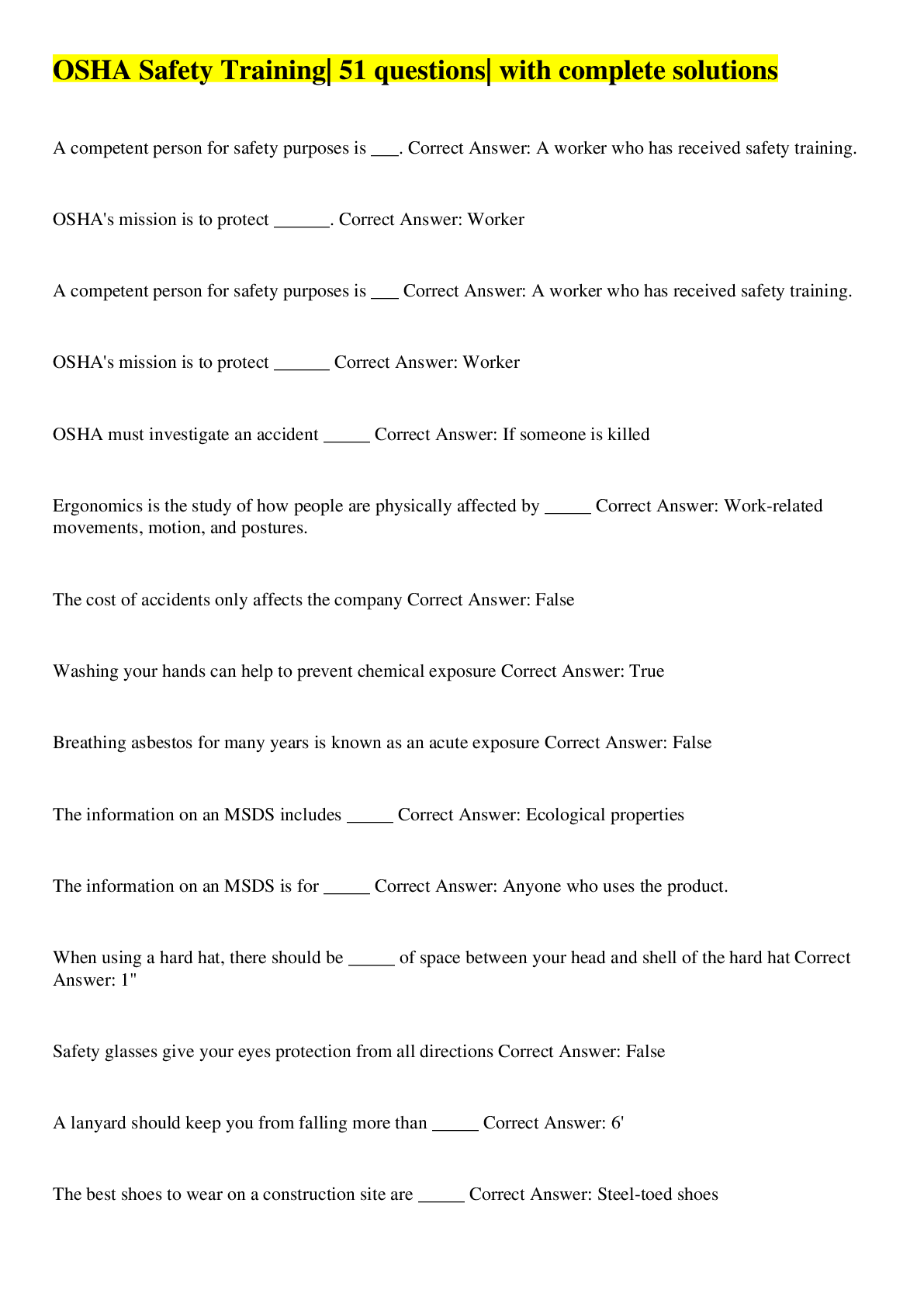

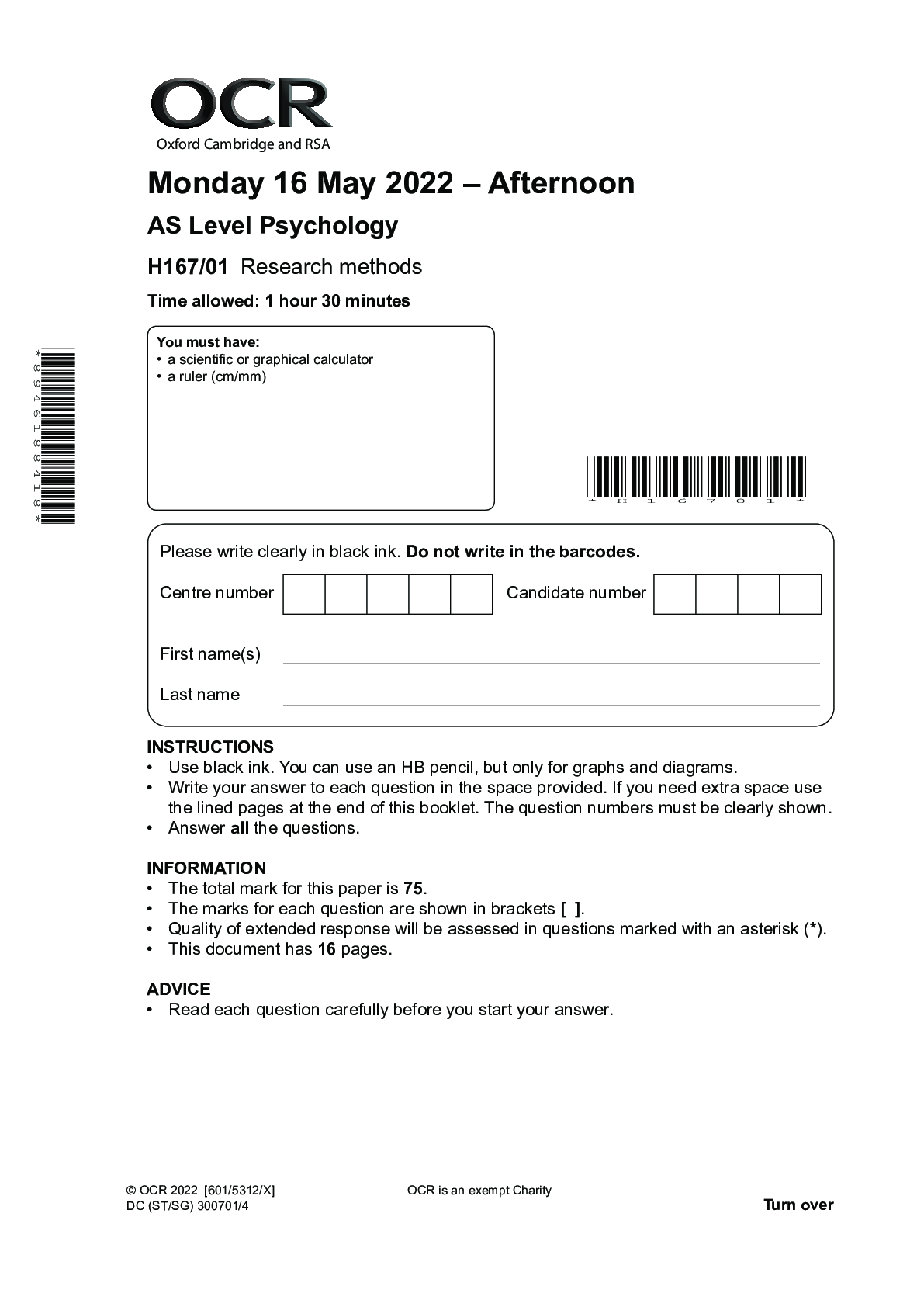

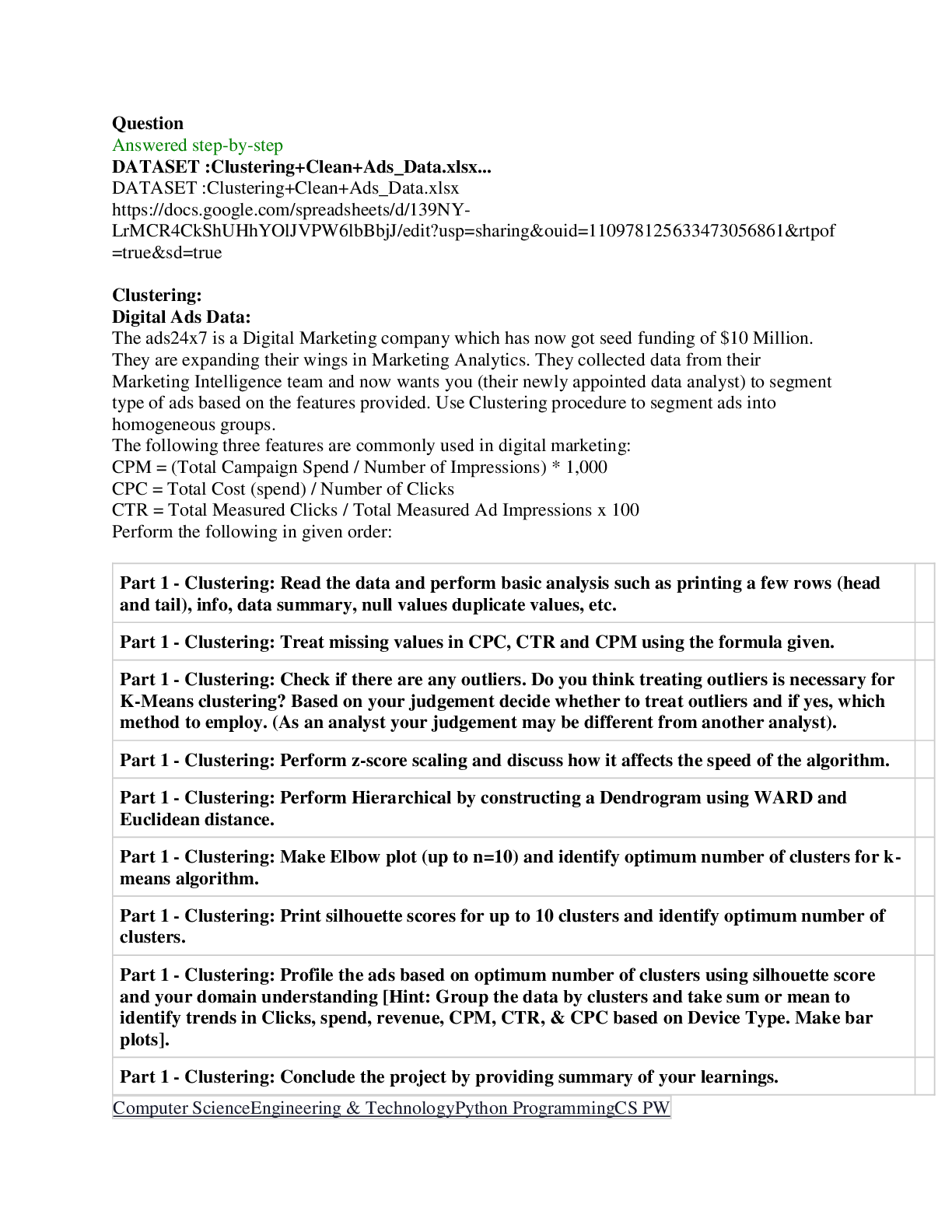
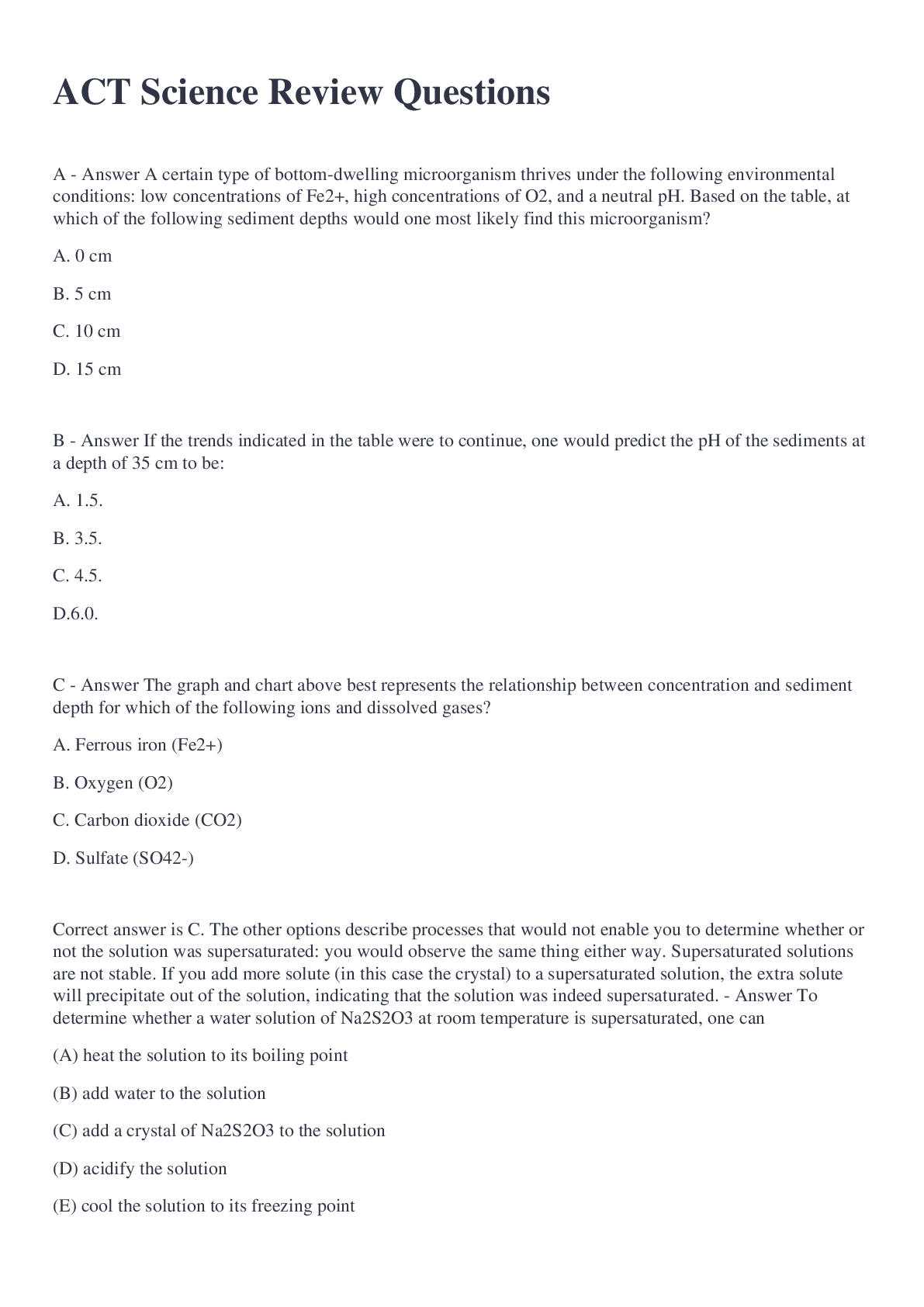

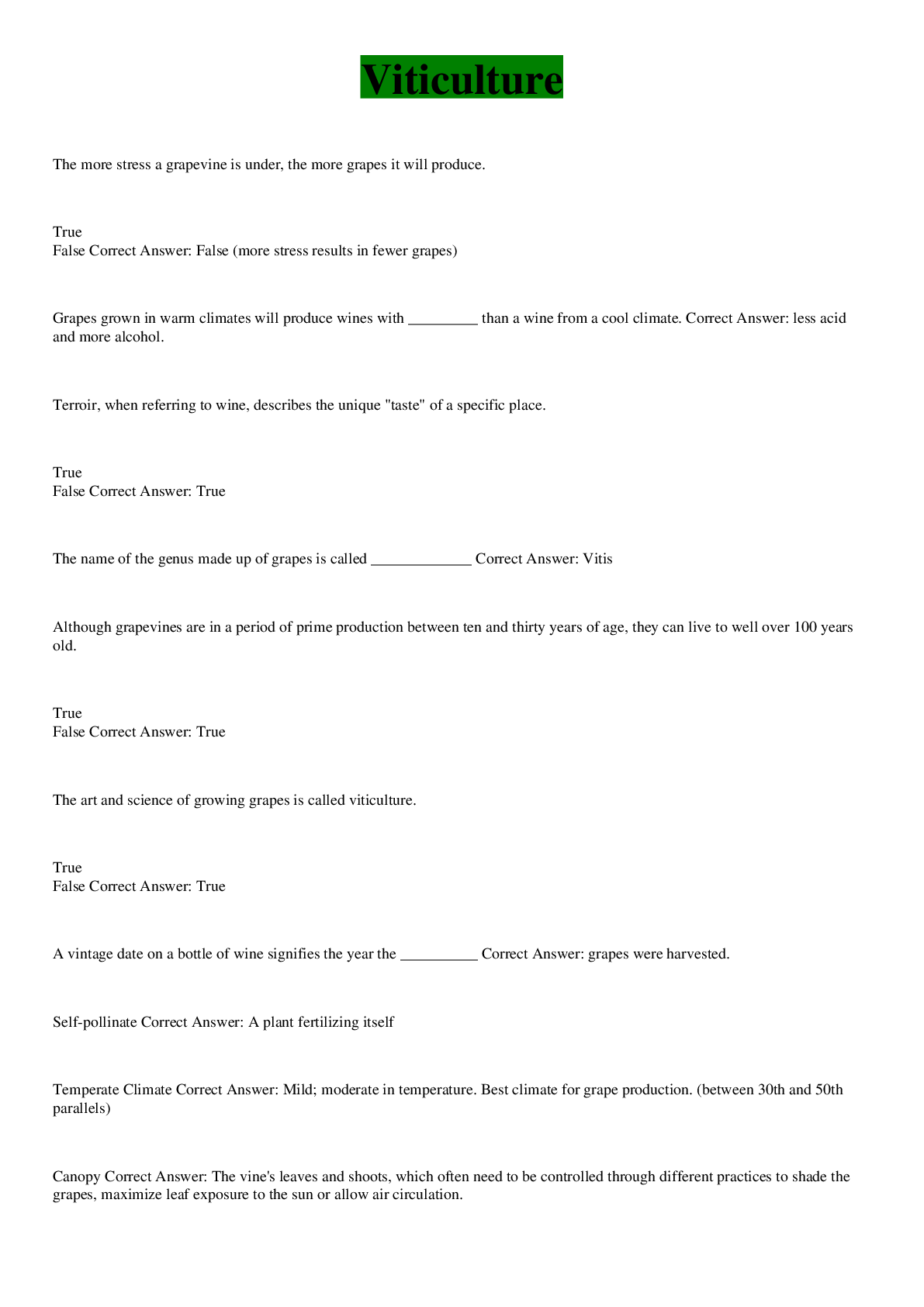



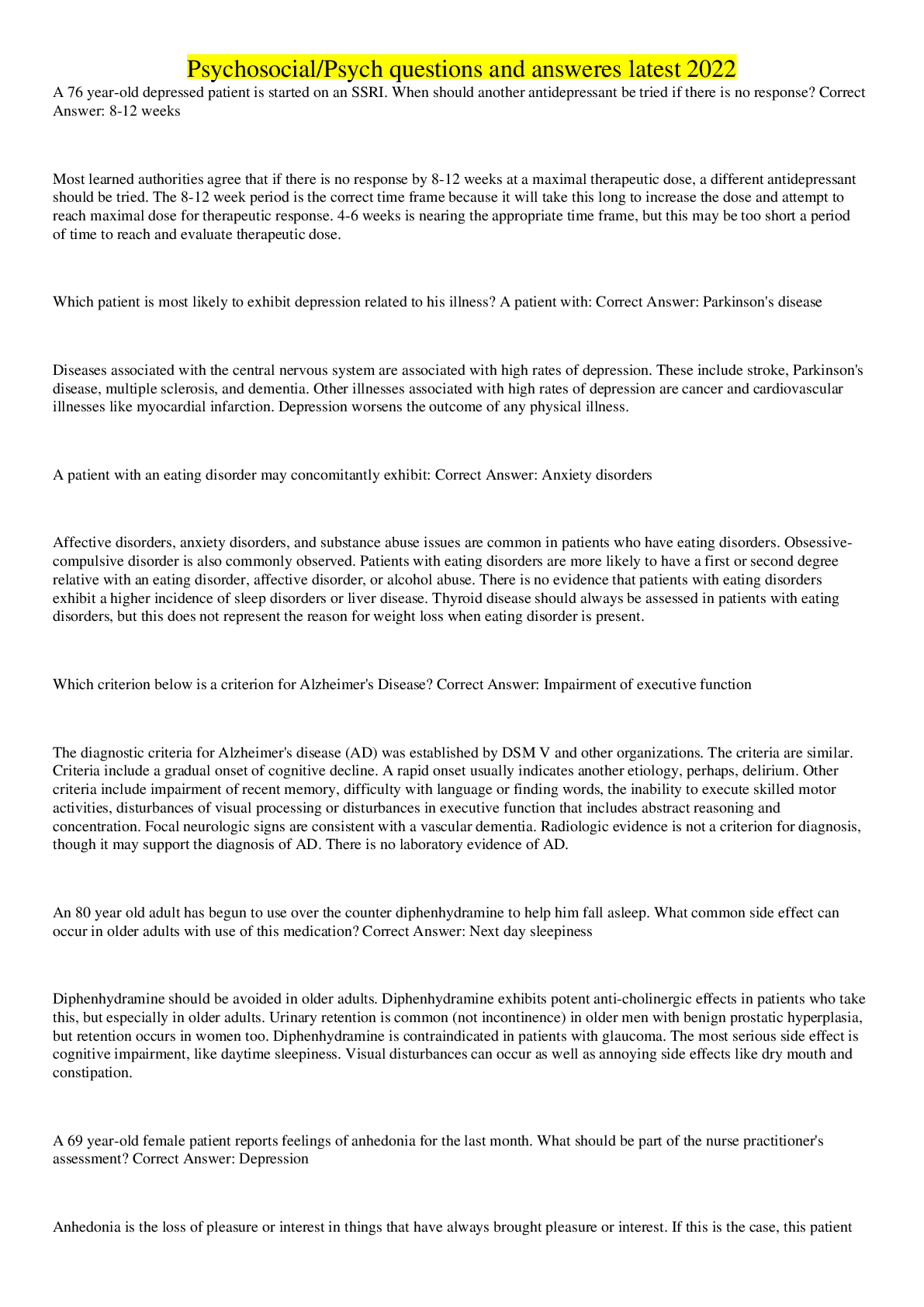
 (1).png)



